“How I Do It” with Harmony Turnbull: The Importance of Support and Supervision when Providing AAC Services
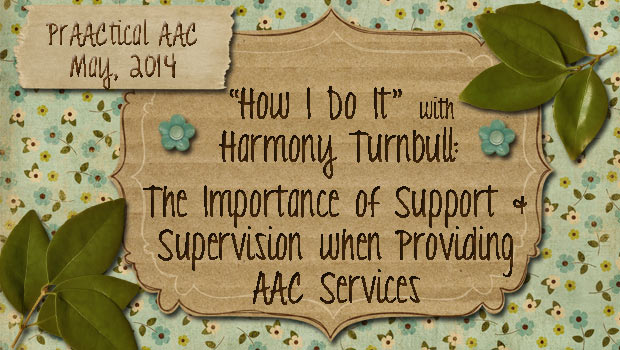
We are so thrilled to have a guest post today, from Australian SLP Harmony Turnbull. Harmony is a Consultant Speech Pathologist for Ageing, Disability and Home Care in NSW, Australia. In her role, she provides support and supervision to senior speech pathologists, carries a small caseload of people with complex needs and provides expert consultancy for management. She has specialised in supporting people with disabilities including complex communication needs for 11 years and is addicted to networking. She can often be found sharing her knowledge and asking many questions on Facebook and Twitter (@SP_Harmony). Harmony is passionate about the work speech/language pathologists can do to improve the quality of life for people with disabilities.
The Importance of Support and Supervision when Providing AAC Services Scenario – Jane
Jane is an SLP who has been working with people with disabilities for over 5 years, including people with complex communication needs. Her caseload can often be a mixed bag of AAC, speech and language, and dysphagia with school aged children. In her organisation she is part of a transdisciplinary team of workers who have a manager and also a clinical supervisor (from their own discipline). Jane’s supervisor is busy with her own caseload, projects, students and provides supervision to 7 other clinicians. Jane is quite self-sufficient most of the time and can practice autonomously. She meets monthly with her team leader and 6 weekly with her clinical supervisor.
Does Jane really need a manager AND a supervisor?
There should be a distinction between ‘managerial’ or ‘administrative’ supervision. This doesn’t necessarily need to be delivered by two different people (and is often not possible in smaller organisations) but the difference should be distinct so that Jane gets time to discuss clinical matters as well as operational issues. (The HETI guide gives a good description of this)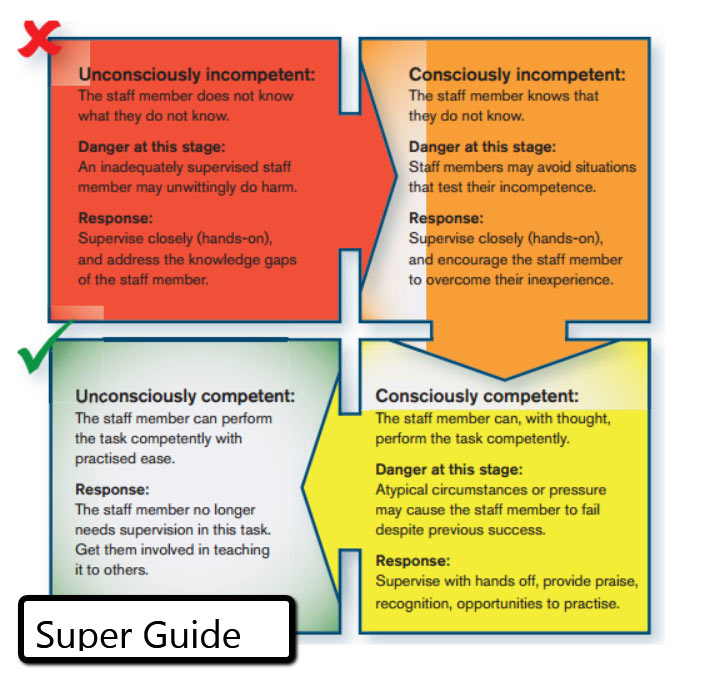
Jane is quite experienced. Why does she need a clinical supervisor? Some people think that supervision is more like ‘snoop-er-vision” – they are being scrutinised, criticised and patronised. This is not the purpose of supervision and a collaborative relationship should be fostered where people feel supported and safe. Even the most experienced clinicians can benefit from good support and supervision.
What other supports should Jane be accessing?
There are lots of places Jane can get support for her clinical skills:
- Her peers – discussions with people from other disciplines, as well as her own discipline, can help provide new ideas and approaches.
- Journal clubs, interest groups or communities of practice – each of these groups can have a different purpose, but each can support practitioners to work toward evidence based and ethical practice.
- Finding a mentor – Speech Pathology Australia runs a volunteer mentor program for members..
However all of these should be in addition to clinical supervision, not in the absence of it.
How can Jane get the most out of her clinical supervision?
To make a valuable and beneficial experience, Jane could:
- Develop professional learning goals that she would like to achieve every 6 or 12 months – a ‘Learning Plan’ can be a very useful tool (There is a template in the HETI Superguide)
- Prepare for each supervision session by making a list of items to discuss, re-read clinical notes relevant to client discussion, or come with questions for her supervisor
- Tell her supervisor how to best support her
- Seek additional support when she needs it rather than just waiting for her supervision session
What can Jane’s supervisor do?
There are lots of things supervisors can do to provide effective support:
- Be available and approachable
- Document supervision with an initial supervision agreement and minutes (There is a template in the HETI Superguide)
- Build trust by maintaining strict confidentiality
- Evaluate supervision – this can be done for each session or after a period of time (There is a template in the HETI Superguide)
- Learn to use techniques such as reflective practice or Motivational Interviewing (See links below)
- Lead by example! Have a learning plan and professional goals, summarise articles and share the information, seek support and mentors.
The HETI Superguide also includes lots of information about being an effective supervisor.
Scenario Continued
Jane is asked to assess a 6 year old boy with cerebral palsy, who has just arrived at a new school. His teacher would like to know how to best support his communication. The family’s first language is Cantonese and they have had difficulty accessing services before now. After meeting the family and visiting the boy at school, Jane is finding it difficult to know what to do next. From her visits and assessment she finds that the family have no clear goals and the boy’s skills are difficult to determine. Jane decides to discuss this client during her next supervision session.
Situation 1: Jane is so busy that she doesn’t have time to prepare for her supervision session. She manages to take all her notes from her visits and reads them to her supervisor. She often works with families from a variety of cultural backgrounds and feels confident with her skills in this area so decides not to waste time including that in the discussion. Jane emphasises that the family seem pretty happy with the boy’s current situation and skills. She hasn’t really had a chance to talk a lot with the teacher so isn’t able to include much information about that environment. Jane’s supervisor has been busy and isn’t aware of the reasons for the original referral or any background information. She gives her opinion based on the information given to her, which is to finalise the assessment report and close the case.
Situation 2: Jane manages to find 15 minutes to read back over her notes before her supervision session and search the online library for any articles that might help. She makes some extra notes about the case that cover some background information, cultural and environmental information as well as her assessment so far. Jane’s supervisor asks her some open questions about the family, the client and the school as well as using a reflective practice model to explore Jane’s feelings and experiences so far. Jane admits that the child may have capacity to learn more skills and start using some form of AAC, but doesn’t know where to start. In situation 1 Jane was unprepared and didn’t give her supervisor a thorough picture of her client. Her supervisor thought she was giving appropriate advice based on the available information. In situation 2, Jane took a small amount of time to prepare and reflect which paid off. Jane’s supervisor used open questions to probe the situation more and helped Jane to feel safe discussing a situation she felt less competent about. She gives Jane an article that seems relevant to the situation and also sends her some links to online resources. Jane asks her supervisor if she would come on the next visit to meet the boy and his teacher.
Other tricky situations… What should I do if my supervisor doesn’t have a lot of (or any!) AAC experience?
Sometimes supervisees actually have more experience with a particular population or intervention than their supervisor. This doesn’t have to spell disaster for the relationship! You can still benefit from supervision, and your supervisor can learn along the way too. As a clinical supervisor, I am often first to admit that I don’t know everything! I’m only human. But, what I do know is how to support people and bring out their curiosity, critical thinking and enthusiasm. If my supervisee asks me about something I’ve never experienced before, I ask them more questions until I understand the problem, then I formulate a plan for finding the possible answers. This might be hunting down the people who do know the answers (sometimes via the #SLPeeps and #WeSpeechies groups on twitter!), search for the information in books or online, send emails to colleagues across the region or even the state, email any academics we know and we keep asking and asking until we find what we need.
What should I do if I don’t get what I need from my supervisor?
Support and supervision is valuable for practitioners and it’s important that you get the support you need, in the way that best suits you. Likewise, supervisors also need to be supported so they can do their job well. In an ideal world the supports would flow from the top, down. More often than not, the world is not ideal, and your supervisor is so stretched that it’s impossible to meet everyone’s needs. There is a mantra that is used by the ‘creator’ of Motivational Interviewing, Dr William R. Miller – “You can with a plan!”. Take some time to plan out what you really need from your supervisor. Use really practical language and action based goals and then share it during your next supervision session. By being proactive and explicit about how your supervisor can help, you can move closer to finding the support you need. Examples of supervision goals:
- “When I discuss client work with my supervisor I will use a ‘case study’ framework”
- “When I discuss a difficulty in any area of my work, I will formulate a question that I would like help to answer”
- “I will identify an agenda ahead of time and prioritise items for discussion so we don’t run out of time”
Choose your goals to suit what you need from supervision and share them with your supervisor so you’re both working towards the same outcomes. If you’re being proactive, your supervisor can identify ways to actively support you to achieve your goals. Clinical supervision is one support that AAC practitioners can utilise. When supervision happens well, clinicians learn more effectively, practice more competently and clients will ultimately benefit. Supervisors don’t need to (and can’t!) know everything, but they need to know how to supervise each person in a way that brings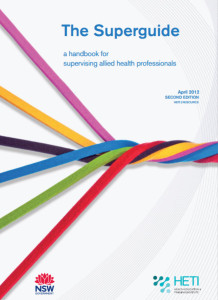 out their best.
out their best.
References and Resources: My favourite resource at the moment is: The Superguide: A handbook for supervising allied health professionals. Health Education and Training Institute (HETI), 2012. http://www.heti.nsw.gov.au/Global/HETI-Resources/allied-health/Superguide-May-2012.pdf This resource has information and templates about:
- writing a supervision agreement/contract
- documenting supervision
- developing learning goals
- reflective practice
- being an effective supervisor
- learning styles
- framework for communicating handover
- and more!
Another favourite is: Supervision in the Helping Professions: Fourth Edition. (2012) Peter Hawkins, Robin Shohet. Although I actually only own the 3rd edition, it is an easily digestible resource that covers all aspects of supervision relating to our profession. For more information about:
- Motivational Interviewing
- Reflective Practice (sorry this excellent article is not freely available at this time): Lewis, A., (2013), Reflective practice ? what is it and how do I do it?. Journal of Clinical Practice in Speech-Language Pathology, 15(2), 70-74.
- Clinical Supervision in Speech-Language Pathology. American Speech-Language-Hearing Association, 2008.
- Supervision and the Professions: Resources for Supervision. Speech-Language-Hearing Association.
- National Clinical Supervision Competency Resource. Health Workforce Australia, May 2013
Filed under: PrAACtical Thinking
Tagged With: Australia, Harmony Turnbull, supervision, support
This post was written by Carole Zangari
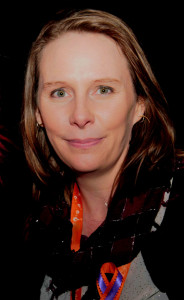
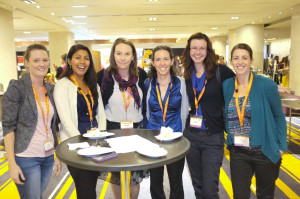


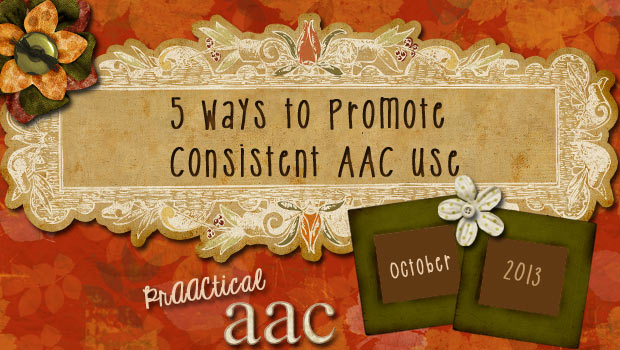
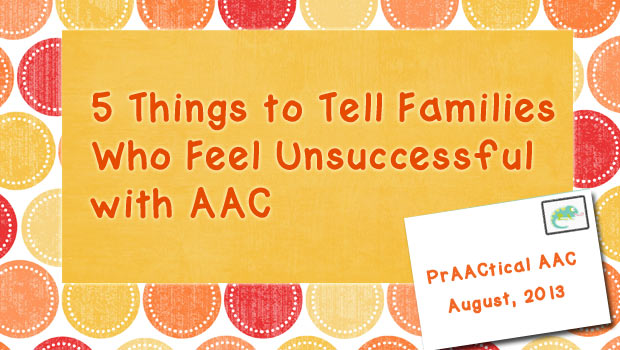
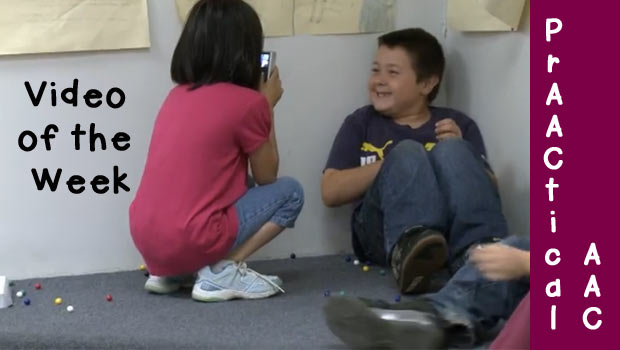
3 Comments
Oh Harmony, will you be my clinical supervisor?
If I had had such a clear outline of the purpose of supervision in my time in government employment, I think I would have been a much better employee! I sometimes had difficulty finding a supervisor I respected enough to share my discussions with – but now I realise I can use supervision as reflective practice and not as snooper-vision!
Additionally I recognise that I need to use this model when I am asked to consult with another slp – not supervision but a chance to goal set for the discussions we have- and this could be transdisciplinary when we are in private practice or working in the disability field.
Speech-language pathologists help people who have never developed, or lost.
Absolutely! Would love to hear about your experiences with AAC supervision.